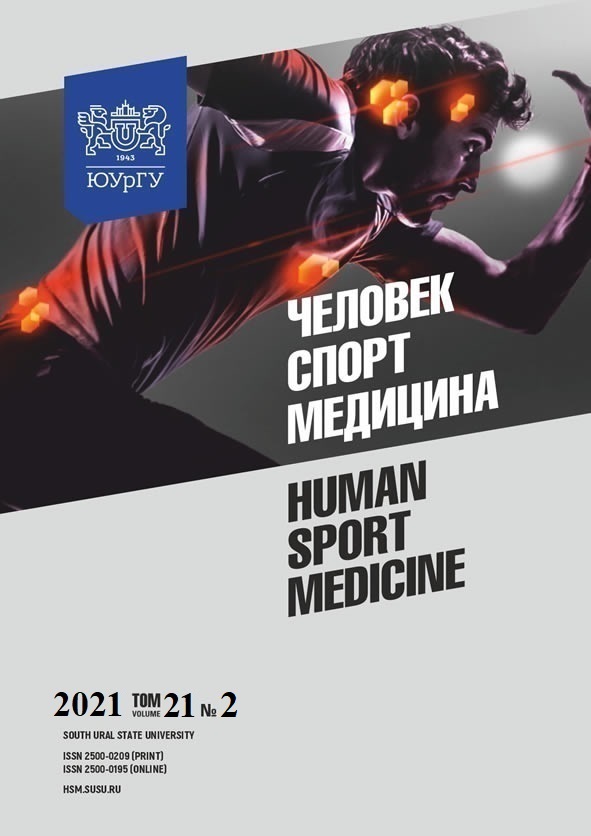PHYSICAL AND EMOTIONAL STATUS OF ATHLETES AFTER MOVING TO THE COMPETITION SITE
Abstract
Aim. The paper aims to study the dynamics of the physical and emotional status of athletes in shooting sports when moving to the competition site. Materials and methods. The study involved 19 highly skilled male athletes of 26.7 ± 1.5 years and a sports title of at least Master of Sport. Health status monitoring was carried out by collecting complaints and subjective assessment of physical and psycho-emotional indicators. Results. Before departure, 89.6% of the sample were in good physical and emotional condition and had no complaints. On the first day after arrival, 42.1% of athletes recorded increased fatigue. The greatest number of negative symptoms occurred on the 3rd and 4th days. The initial self-assessment of physical condition among athletes before departure was as follows: 26.6% – “excellent”, 57.8% – “good”, 15.6% – “satisfactory”. On the first and second days after arrival self-assessment of physical condition was as follows (by days): 18.75% and 81.25% – “good”, 26.6% and 73.4% – “satisfactory”. Starting from the 3rd day, the number of athletes thinking of their physical condition as “excellent” increased and by the 4th day returned to the initial level. The initial self-assessment of the emotional status was as follows: 52.6% – “good”, 36.8% – “excellent” and 10.6% – “satisfactory”. The best emotional status was preserved for the first three days after departure (practically at the initial level). Conclusion. After a six-hour flight to the competition site, the athletes showed the greatest number of negative symptoms on the 3rd and 4th days of their stay in the new time zone. The most frequent complaints were sleep disturbances, weakness, headache and decreased reaction speed. Their self-assessment of physical condition in the first and second days was better than the initial one and began to deteriorate after the third day. The best emotional state was observed in the first three days after departure.
References
References on translit
Copyright (c) 2021 Human. Sport. Medicine

This work is licensed under a Creative Commons Attribution-NonCommercial-NoDerivatives 4.0 International License.















